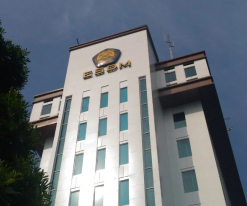Nickel resources are still secure said Ministry amidst claims nickel reserves are depleting
The Ministry of Energy and Mineral Resources (ESDM) has refuted claims that the country's nickel reserves are dwindling. However, Ing Tri Winarno, the Director of Mineral and Coal Program Development at the Ministry of Energy and Mineral Resources, Indonesia still has around 5 billion tons of nickel reserves.
This figure includes approximately 3.5 billion tons of high-grade nickel (saprolite) and 1.5 billion tons of low-grade nickel (limonite).
Tri stated that Indonesia's nickel reserves are still secure and that there are mechanisms in place to add to these reserves. The Ministry is also offering research institutions the opportunity to conduct exploration studies to identify additional nickel reserves. He noted that regions in eastern Indonesia are believed to hold significant untapped nickel potential.
This clarification comes after concerns were raised about Indonesia's high-grade nickel ore reserves possibly being depleted within six years. High-grade nickel ore with a 1.7% nickel content is primarily used in the production of nickel pig iron (NPI), which is a vital raw material for stainless steel. The depletion of such reserves could pose a risk to the supply chain for stainless steel.
In contrast, lower-grade nickel ore is used in the production of batteries for electric vehicles. The Indonesian government has encouraged the development of domestic processing industries for both high and low-grade nickel ores.
Indonesia's nickel mining and smelting industry have played a significant role in the country's economy. Billions of dollars in global investments flowed into Indonesia after the government imposed a ban on the export of unprocessed nickel ore in 2020.
The duration of mineral reserves is an estimation and can change over time due to exploration activities and advancements in extraction technologies. Indonesia is looking to ensure the longevity of its nickel reserves through comprehensive resource management.
Citi, a global financial services company, has suggested that Indonesia is on track to account for over half of the world's nickel supply and produce half of the world's intermediate nickel by 2023.
However, this dominant position also comes with the risk of being seen as a swing producer and facing pressure to limit supply, particularly during periods of lower prices.
Tag
Already have an account? Sign In
-
Start reading
Freemium
-
Monthly Subscription
30% OFF$26.03
$37.19/MonthCancel anytime
This offer is open to all new subscribers!
Subscribe now -
Yearly Subscription
33% OFF$228.13
$340.5/YearCancel anytime
This offer is open to all new subscribers!
Subscribe now





